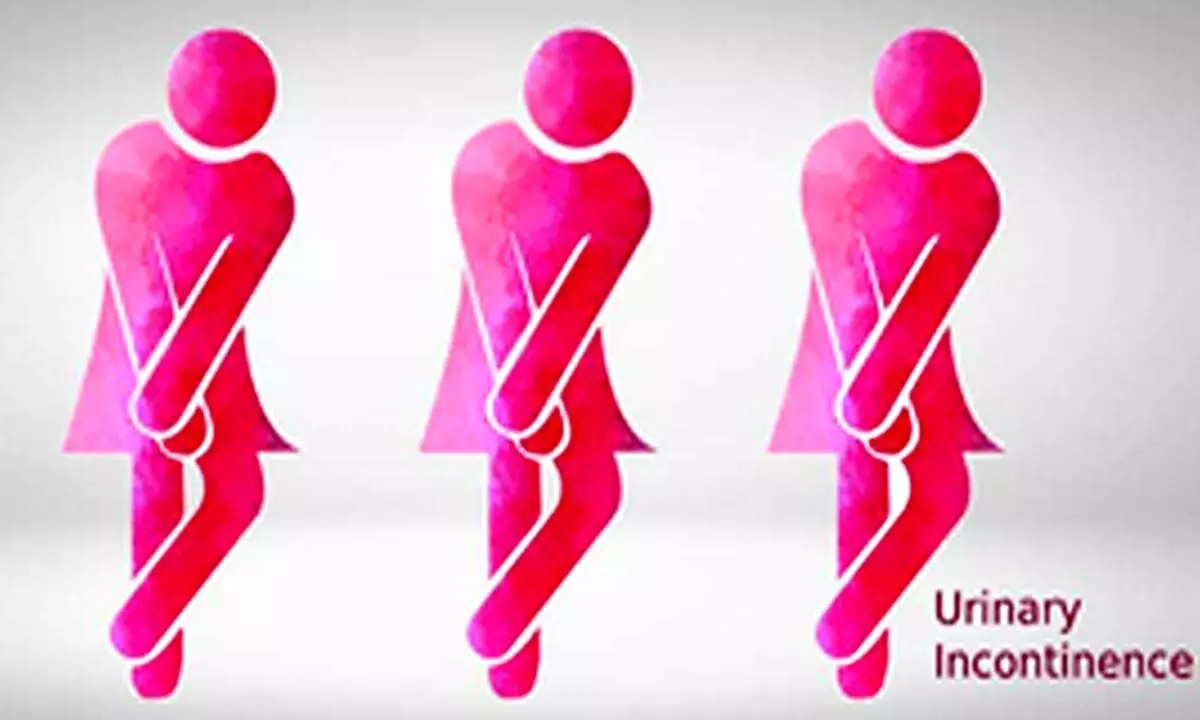Urinary incontinence may affect your skin and kidneys, say doctors
Share :

Urinary incontinence -- the involuntary loss of bladder control -- can also have a significant effect on your skin and kidneys, said doctors on Sunday.
New Delhi: Urinary incontinence -- the involuntary loss of bladder control -- can also have a significant effect on your skin and kidneys, said doctors on Sunday.
World Urinary Continence Week is observed between June 17-23 to raise awareness of bladder and bowel problems.
Urinary incontinence causes involuntary loss of bladder control, leading to the accidental leakage of urine. It is a common condition that can range from occasional minor leaks to more frequent and severe issues.
“The combination of hormones and stretched muscles means the muscles that control your bladder are weakened. This can lead to an accidental leak of urine,” Dr Ashwin Mallya, Consultant, Urologist, and Robotic, Uro Onco Surgeon, Sir Ganga Ram Hospital, told IANS.
“Urinary incontinence doesn't just affect the bladder but it can lead to skin issues like rashes and infections due to constant moisture. Additionally, it can cause urinary tract infections (UTIs), and in severe cases, it may lead to kidney damage,” he added.
The doctor said that it can also lead to mental health problems like “anxiety, depression, and social isolation. Many people may start avoiding social activities or situations where they fear embarrassment, which can lead to social isolation and a reduced quality of life”.
The condition can affect individuals of all ages but is more prevalent among older adults, especially women during pregnancy and childbirth.
If it continues for long in women after childbirth and without childbirth is the point of concern that needs to be treated, the health expert said.
Dr Arif Akhtar, Senior Consultant - Urology, Marengo Asia Hospital, Gurugram told IANS that bladder control declines due to age-related changes such as weakening pelvic floor muscles and excessive or insufficient bladder muscle activity, leading to the condition.
“Stress incontinence can result from pelvic muscle stretches and increased bladder pressure during pregnancy and childbirth. Reduced urethral closure pressure and urogenital shrinkage are the outcomes of menopause-induced oestrogen reduction. Overflow incontinence in males is a result of both benign prostatic hyperplasia and problems following a prostatectomy”.
Studies show that up to 45 per cent of women and 15 per cent of men in India suffer from some form of urinary incontinence. This disparity is largely due to differences in anatomy, pregnancy, childbirth, and menopause, which are unique risk factors for women.
“Pelvic Floor Muscle Training (PFMT) with Kegel exercises and therapies to strengthen pelvic muscles are just a few of the many strategies used to prevent urinary incontinence,” Dr Arif told IANS.
Other approaches involve adopting a healthy lifestyle, by maintaining a healthy weight as it reduces pressure on the bladder, staying active by doing regular exercise to strengthen pelvic floor muscles; limiting caffeine and alcohol as these can irritate the bladder; quitting smoking because smoking can lead to coughing, which exacerbates stress incontinence, the doctors said.










